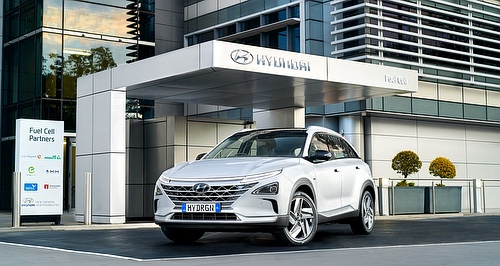News - Industry NewsStudy finds hydrogen a viable alternative to EVUK-based research says there will be over one million hydrogen vehicles on the road by 202722 Jun 2022 A NEW STUDY from UK-based research analyst company Juniper Research has found the number of hydrogen vehicles in service globally will exceed one million in 2027, from just over 60,000 in 2022. This represents a substantial growth of over 1500 per cent.
The company’s Hydrogen Vehicles research report provides a highly detailed analysis of this early-stage market. This assessment features an examination of the different segments that are critical to the success of hydrogen in new use cases, including: Consumer Hydrogen Vehicles, Commercial Hydrogen Vehicles, Hydrogen in Aviation, Hydrogen Production, Hydrogen Fuelling Infrastructure.
The report also presents extensive market forecasts delivering detailed insights and whole market sizing across hydrogen vehicles in use, shipments of these vehicles and hardware revenue associated with this. The information is out to 2027 for eight key regions and 60 countries, as well as being split by consumer vehicles and commercial vehicles.
The report contains case studies of six key automotive manufacturers and their approach to this rapidly evolving market providing an invaluable resource for stakeholders seeking to understand the future trajectory of this dynamic area.
Juniper Research defines hydrogen vehicles as vehicles that use hydrogen propulsion systems as their on board fuel. The chemical energy of hydrogen and oxygen reacts with the fuel cell and converts the energy to electricity. This then enables drive from an electric motor(s) like a battery powered vehicle. The study did not examine other forms of propulsion that use hydrogen as a fuel in much the same way petrol and diesel today.
The research identified hydrogen vehicles as an increasingly viable alternative to BEVs (Battery Electric Vehicles). The potential for enhanced range and rapid refuelling compares favourably with BEVs; reducing customer anxieties around BEV ownership.
These positives have led to significant investment by car manufacturers, including Hyundai, Toyota and BMW, and this will translate into an increasingly popular and available product over the next five years.
The research forecasts that the consumer market will lead the hydrogen vehicles space, with consumer vehicles accounting for over 60 per cent of hydrogen vehicles in service globally in 2027.
The report identified the nascent development stage of many commercial vehicle types and the high average cost of hydrogen powered commercial vehicles, at over $70,000 globally in 2022, as key factors limiting adoption.
Research co-author Olivia Williams explained: “Manufacturers will need to make hydrogen vehicles more affordable to become viable for fleets, but increased range and suitability for heavy goods transport will ultimately drive growth and economies of scale.”
Additionally, the report identified the low availability of fuelling infrastructure as a key challenge for wider adoption but highlighted heavy industry investment as key to reducing this concern over the next five years.
The report recommends that infrastructure vendors provide ‘green’ hydrogen, produced using renewable energy sources, to best take advantage of concerns around the environment driving the adoption of alternative fuels.
 Read more16th of June 2022  Toyota defends ‘greener’ powertrain strategyJapanese giant says market demand should drive BEV proliferation6th of June 2022  WA Police trial NEVs for operational dutiesNew energy vehicles are being trialled in one of the world’s largest police jurisdictions |
Click to shareIndustry News articlesMotor industry news |
















Facebook Twitter Instagram